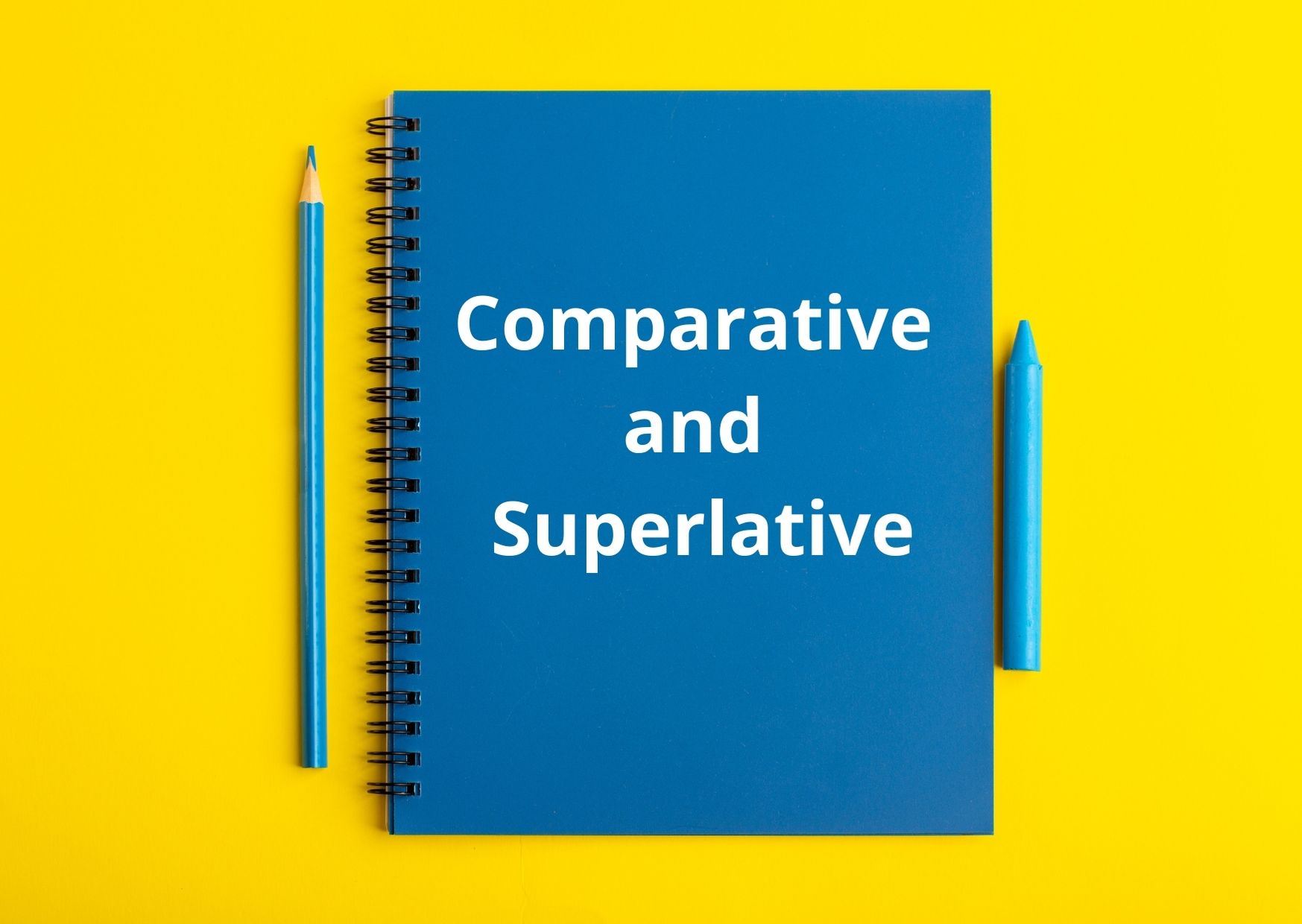Comparative And Superlative
Are you sometimes confused about whether to use ‘nicer’ or ‘more nice’ in a sentence? Are you wondering if it is ‘more than’ or ‘more as’? Then let us go ahead and learn about Comparative and Superlative Adjectives and Adverbs to clear out all the confusion.
- Comparative adjectives and adverbs:
Adjective or adverb that compares someone (or something) to someone (or something) are called comparative.
Example:
Maths is more interesting than chemistry.
Jon is shorter than Robb.
A rabbit is faster than a tortoise.
Formulation of Comparative Adjectives and adverbs:
Add ‘er’ at the end of the word, if it is a one-syllable word
Example:
Easy: easier
Early: earlier
Rich: richer
Long: longer
Late: later
Add “more’ before the word and ‘than’ after it, if it is a multi-syllable word or a past participle adjective or an adverb ending with ‘-ly’
Example:
Expensive: more expensive
Energetic: more energetic
Lovely: more lovely
Rapidly: more rapidly
Loved: more loved
Interested: more interested
- Superlative Adjectives and Adverbs:
Adjective and Adverb that compares someone (or something) to every other person (or thing) in the group.
Example:
Math is the most interesting subject.
Jon is the shortest amongst all the siblings.
The cheetah is the fastest animal.
Formulation of Superlative Adjectives and adverbs:
Add ‘est’ at the end of the word, if it is a one-syllable word
Example:
Easy: easiest
Early: earliest
Rich: richest
Long: longest
Late: latest
Add “the most’ before the word, if it is a multi-syllable word or a past participle adjective or an adverb ending with ‘-ly’
Example:
Expensive: the most expensive
Energetic: the most energetic
Lovely: the most lovely
Rapidly: the most rapidly
Loved: the most loved
Interested: the most interested
Exceptions for the formation of comparative and superlative
Irregular adjectives and adverbs
Following are examples of some commonly used adjectives and adverbs which do not follow the above rules:
Good:
Comparative form: Better
Superlative form: Best
Well (in good health) :
Comparative form: Better
Superlative form: Best
Well (adverb of good) :
Comparative form: Better
Superlative form: Best
Bad :
Comparative form: Worse
Superlative form: Worst
Badly :
Comparative form: Worse
Superlative form: Worst
Much / Many :
Comparative form: More
Superlative form: Most
Little :
Comparative form: Less
Superlative form: Least
Far :
Comparative form: Farther / Further
Superlative form: Farthest / Furthest
Two syllable adjectives and adverbs:
Few two-syllable adjectives and adverbs can take both ‘er’ and ‘est’ or ‘more’ and ‘most’.
Some of the commonly used are as follows:
Quiet, simple, lively, polite, friendly, etc.
One syllable adjectives and adverbs:
Few one-syllable adjectives and adverbs take ‘more’ and ‘most’ instead of ‘er’ and ‘est’.
Some of the commonly used are as follows:
Real, wrong, ill, fun, right, etc.
As you can see, there is nothing to panic about. Comparative and Superlative may seem intimidating at first but really isn’t. Solve some practice sheets to get a proper understanding of the topic.


